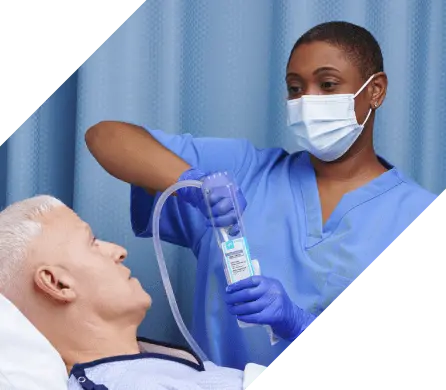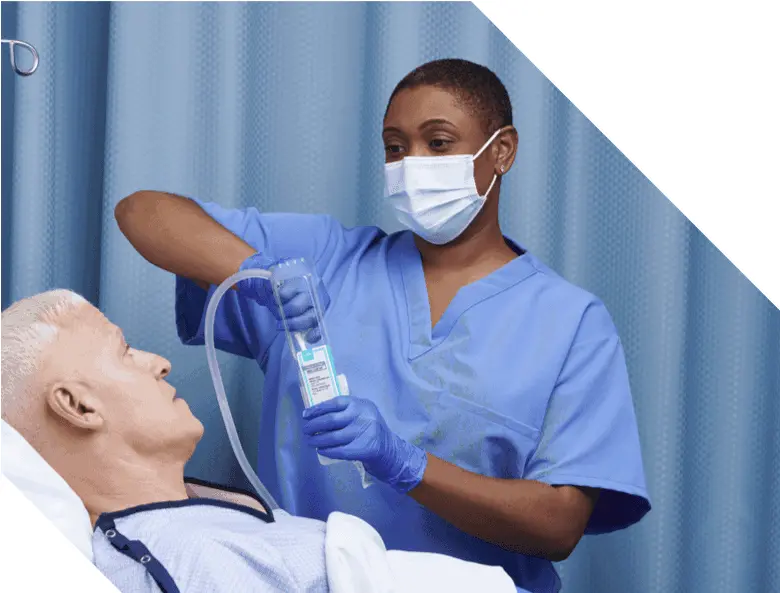Discover a total body approach to help prevent infection
Fighting surgical site infections (SSIs), hospital-acquired pneumonia (HAP) and other HAIs is your everyday challenge. Our universal decolonization products can help, targeting key risk areas—the nose, mouth and skin—to help you improve patient outcomes. Take it to the next level and request a product utilization review to identify ways to enhance best practices and lower supply spend.
Nasal swabs help reduce the risk of skin infections
Approximately 80% of Staphylococcus aureus surgical site infections originate in a patient’s own nasal flora.1 Studies show that povidone iodine or an alcohol-based antiseptic may be good decolonizing agents for preventing infections due to S. aureus.2
- Available in ethyl alcohol and povidone iodine formulas
- Presaturated for easy and convenient application
DuoCare™ oral rinse helps reduce HAP risk
Make it easier to maintain good oral health in patients—key to reducing HAP risk3—with this 2-in-1 cleanser and mouth moisturizer.
- Kills 99% of S. aureus4
- Provides 20% more moisturizing capability than current Medline mouth moisturizing gel
- 50% less steps than hydrogen peroxide kits
ReadyPrep® 2% CHG cloths help prevent SSIs
Did you know that 60% of SSIs are preventable by following evidence-based guidelines?5 Decolonizing skin of microbes like methicillin-resistant S. aureus (MRSA) before surgery using an antiseptic like chlorhexidine gluconate (CHG) can help.6
- Features rapid kill time and efficacy up to 6 hours after application
- NEW: Now available in a 6 wipe pack
Improve outcomes—request a product utilization review
Our product support specialists work with you to identify practice gaps, improve product usage and achieve greater cost savings. Here’s what you can expect:
- Analysis of your decolonization supply spend
- Opportunities to consolidate vendors
- Insights and a customized plan tailored to your facility
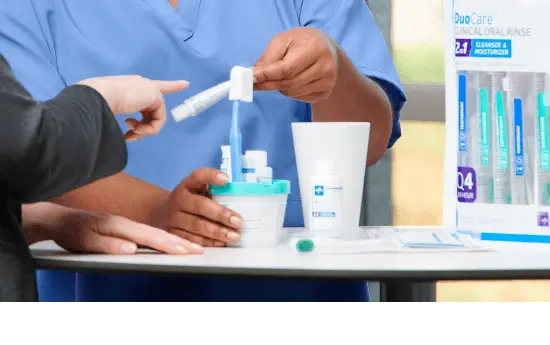
Explore more decolonization tools and strategies
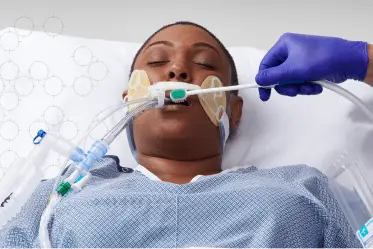
Discover ICU nursing protocols for HAI prevention
Learn more about practices like daily CHG bathing and more to help lower HAIs in high-risk patients.
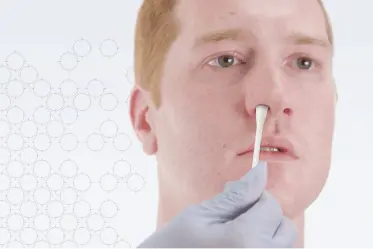
Learn how nasal swabs help reduce Staph
Study results show 62% ethyl alcohol swabs are an effective alternative to antibiotics for reducing S. aureus.

Enhance staff skills with online continuing education
Medline University offers a full array of decolonization courses that support evidence-based practices for CME credit.
References:
- WHO, WHO Surgical Site Infection Prevention Guidelines. https://cdn.who.int/media/docs/default-source/integrated-health-services-(ihs)/ssi/evidence/appendix3.pdf?sfvrsn=5e78dae0_2
- Steed, L., Costello, J., Lohia, S., Jones, TaylorT., Spannhake, E., Nguyen, S.. (2014). Reduction of nasal Staphylococcus aureus carriage in health care professionals by treatment with a nonantibiotic, alcohol-based nasal antiseptic. https://doi.org/10.1016/j.ajic.2014.04.008. Accessed December 22, 2022.
- Keet E. Non-ventilator Hospital-acquired Pneumonia: An Emerging Threat. Available at: https://www.contagionlive.com/news/nonventilator-hospitalacquired-pneumonia-an-emerging-threat. Accessed June 24, 2019.
- In vitro testing on file.
- Preventing SSIs: An Evidence-Based Update. Physician’s Weekly, June 22, 2015. https://www.physiciansweekly.com/preventing-ssisevidence-based-update/. Accessed March 29, 2022
- George, S., Leasure, A. R., & Horstmanshof, D. (2016). Effectiveness of Decolonization With Chlorhexidine and Mupirocin in Reducing Surgical Site Infections: A Systematic Review. Dimensions of critical care nursing : DCCN, 35(4), 204–222. https://doi.org/10.1097/DCC.0000000000000192. Accessed December 22, 2022.
